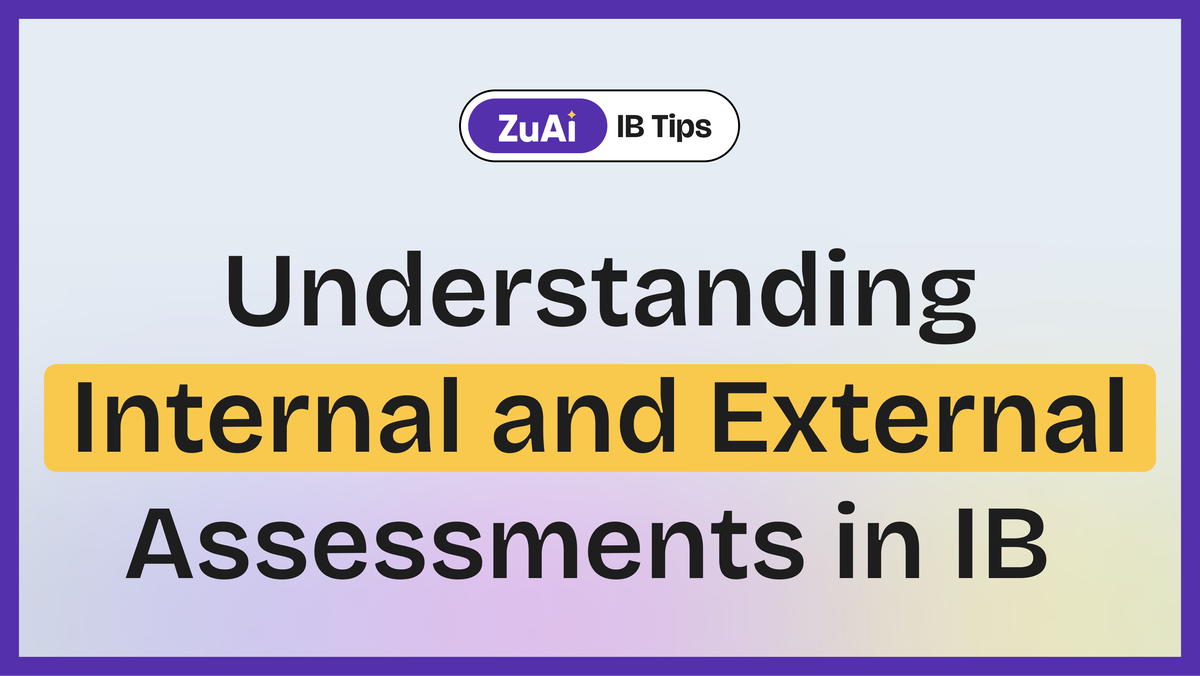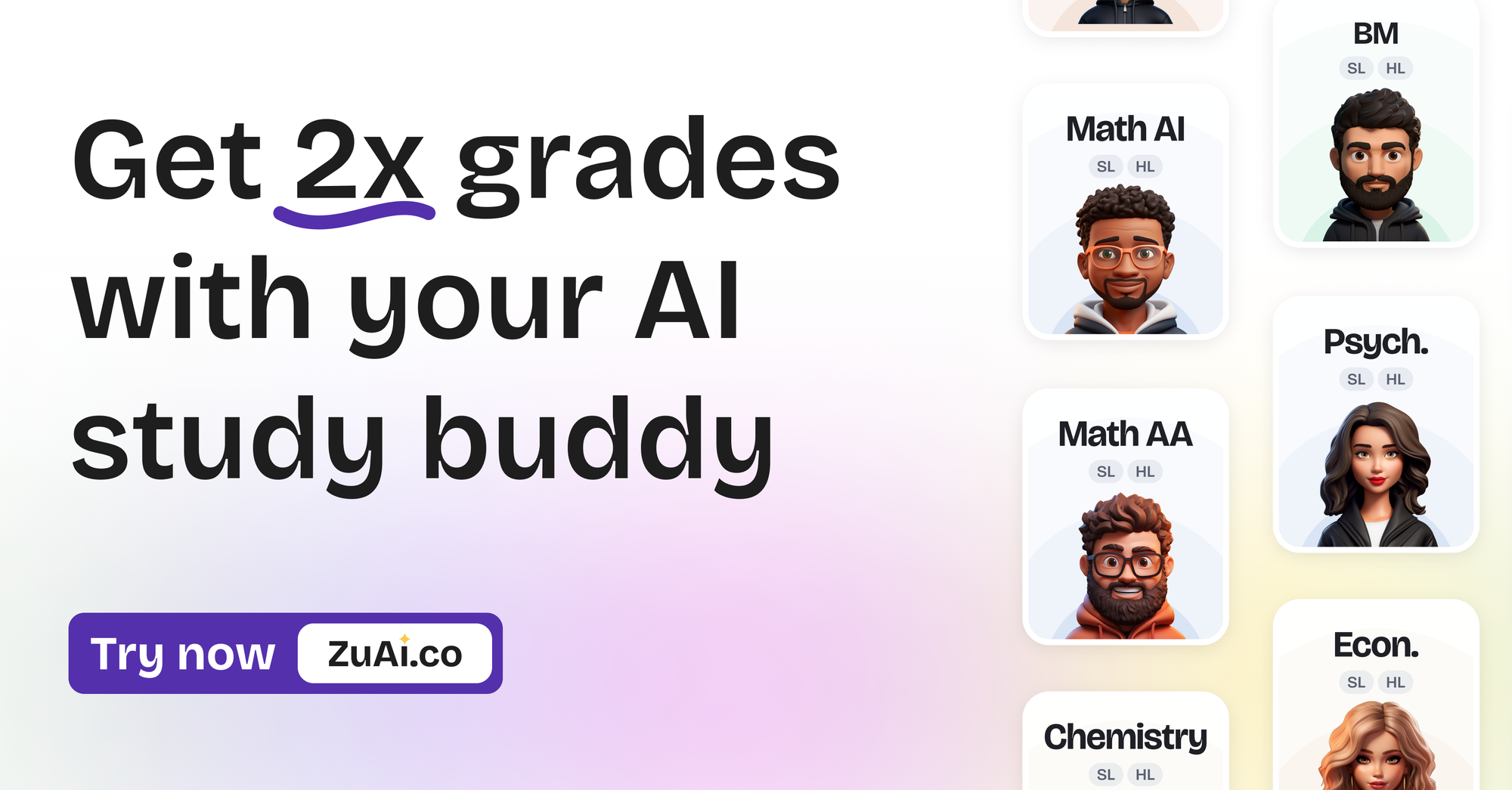Understanding Internal and External Assessments in IB: Key Differences and Strategies for N24/M25

Author: John Bennett, IB Coordinator & Assessment Specialist
For students preparing for the N24 and M25 IB exam sessions, knowing the difference between Internal Assessments (IAs) and External Assessments (EAs) is crucial for success. Each assessment type has unique requirements and grading criteria. This guide will help you understand both, with strategies to excel in each.
Understanding Internal and External Assessments in IB: Key Differences and Strategies for N24/M25
What are IB Internal Assessments (IAs)?
Internal Assessments (IAs) are a significant part of the IB curriculum and are assessed by your teachers. They cover projects, presentations, and other practical work tailored to each subject. The purpose of IAs is to evaluate skills beyond what can be tested in a formal exam, such as research, analytical thinking, and practical applications.
Examples of IAs:
- Math: An exploration of mathematical concepts (e.g., applying calculus to real-world scenarios)
- Science: An experiment or investigation, like a biology lab report on photosynthesis
- Language: Oral presentations on a literary analysis or cultural aspect
What are IB External Assessments (EAs)?
External Assessments (EAs) are graded by external IB examiners and make up the bulk of your final IB grade. These include written exams, extended essays, and Theory of Knowledge (TOK) essays. Since they are standardized, EAs ensure consistency in grading across IB schools worldwide.
Examples of EAs:
- Written Exams: Subject-specific papers in Math, English, and Sciences, held in a controlled exam environment
- Extended Essay (EE): A 4,000-word research paper on a topic of the student’s choice
- Theory of Knowledge (TOK) Essay: A philosophical essay exploring knowledge and ways of knowing
Key Differences Between IAs and EAs
| Aspect | Internal Assessments (IAs) | External Assessments (EAs) |
|---|---|---|
| Who Grades | Your IB teacher | External IB examiners |
| Format | Projects, oral presentations, reports | Written exams, essays |
| Weight in Final Grade | Typically 20-30% | Generally 70-80% |
| Feedback | Immediate feedback from teachers | Limited feedback until after exams |
| Purpose | Skill-based evaluation | Knowledge-based evaluation |
Understanding these differences will help you adapt your approach to each type of assessment.
Strategies to Excel in Internal Assessments for N24/M25
Step 1 – Choose a Topic That Interests You
Since IAs often involve independent research, pick a topic that genuinely excites you. This makes the process more enjoyable and increases your motivation to produce high-quality work.
Example: In Biology, you could explore a recent environmental issue or experiment on plant growth if you’re passionate about ecology.
Step 2 – Follow the Assessment Criteria Closely
Each IA has detailed criteria that outline what is required to score well. Study the criteria carefully and ensure each component is met. For instance, many IAs require a detailed methodology and clear data analysis.
Pro Tip: Ask your teacher for examples of high-scoring IAs to understand what a top-grade IA looks like.
Step 3 – Get Feedback and Revise
One advantage of IAs is that you can get feedback from your teacher before final submission. Use this opportunity to make improvements and clarify any areas of confusion.
Tip: Schedule regular check-ins with your teacher throughout the IA process. This ensures you stay on track and meet all assessment criteria.
Strategies to Excel in External Assessments for N24/M25
Step 1 – Master Past Papers
Past papers are invaluable for preparing for EAs. They help you familiarize yourself with question types and exam formats, allowing you to refine your responses.
How to Use Past Papers:
- Review the marking schemes to understand what examiners are looking for.
- Time yourself under exam conditions to build stamina and accuracy.
Step 2 – Focus on Time Management
Since EAs are time-constrained, you need effective time management skills. Allocate specific amounts of time to each section and practice pacing yourself.
Example: For an IB History exam, allot time to outline your essay, write, and review within the allocated time limit.
Step 3 – Revise Actively and Efficiently
Active revision techniques like flashcards, mind mapping, and teaching others can improve retention and understanding. This is especially useful for content-heavy subjects like History and Biology.
Pro Tip: Use spaced repetition to review material periodically, ensuring long-term retention of important concepts.
Bonus Tip: AI app for IB Exams = ZuAI
It's the ultimate AI app designed to help your child excel in their IB exams. As a parent, you want the best for your child, and so do we.
ZuAI provides personalized study support, practice questions, and detailed explanations tailored specifically to the IB curriculum.
Think of it as a smart tutor who understands your child’s unique learning needs, helping them tackle challenging subjects with confidence.
With ZuAI, you can feel reassured knowing your child is getting the extra help they need to succeed and build a bright future.
We genuinely care about your child's success and are here to support them every step of the way.

Looking for free solutions to previous year's question papers? Check out ZuAI's YouTube channel.
FAQ Section
Q1: How important are IAs compared to EAs in my final IB grade?
EAs generally account for 70-80% of your final grade, while IAs contribute around 20-30%. However, performing well in IAs can significantly boost your overall score.
Q2: Can I get help on my IA topic from my teacher?
Yes, teachers can guide you on choosing a topic and meeting assessment criteria but can’t provide extensive assistance on the actual work. Feedback is allowed, so use it wisely to improve your draft.
Q3: How can I manage my time effectively during EAs?
Practice timing yourself with past papers and break down the time for each section or question. Stick to a strict time plan to ensure you complete all parts of the exam.
Q4: What should I prioritize in EA preparation?
Focus on high-yield topics and review past paper questions to understand patterns. For essay-based subjects, practice structuring responses concisely.
Q5: How soon before the IA deadline should I start?
Start your IA at least a few months before the deadline. This gives you ample time for research, drafting, feedback, and revision.
Conclusion
Both IAs and EAs are essential components of the IB curriculum, each testing different skills. By understanding the purpose and requirements of each, you can better prepare for them. Use these strategies to approach your N24/M25 assessments with confidence and achieve the results you’re aiming for.
Balancing these assessments may seem challenging, but with careful planning and consistent effort, you’ll be well on your way to success.
